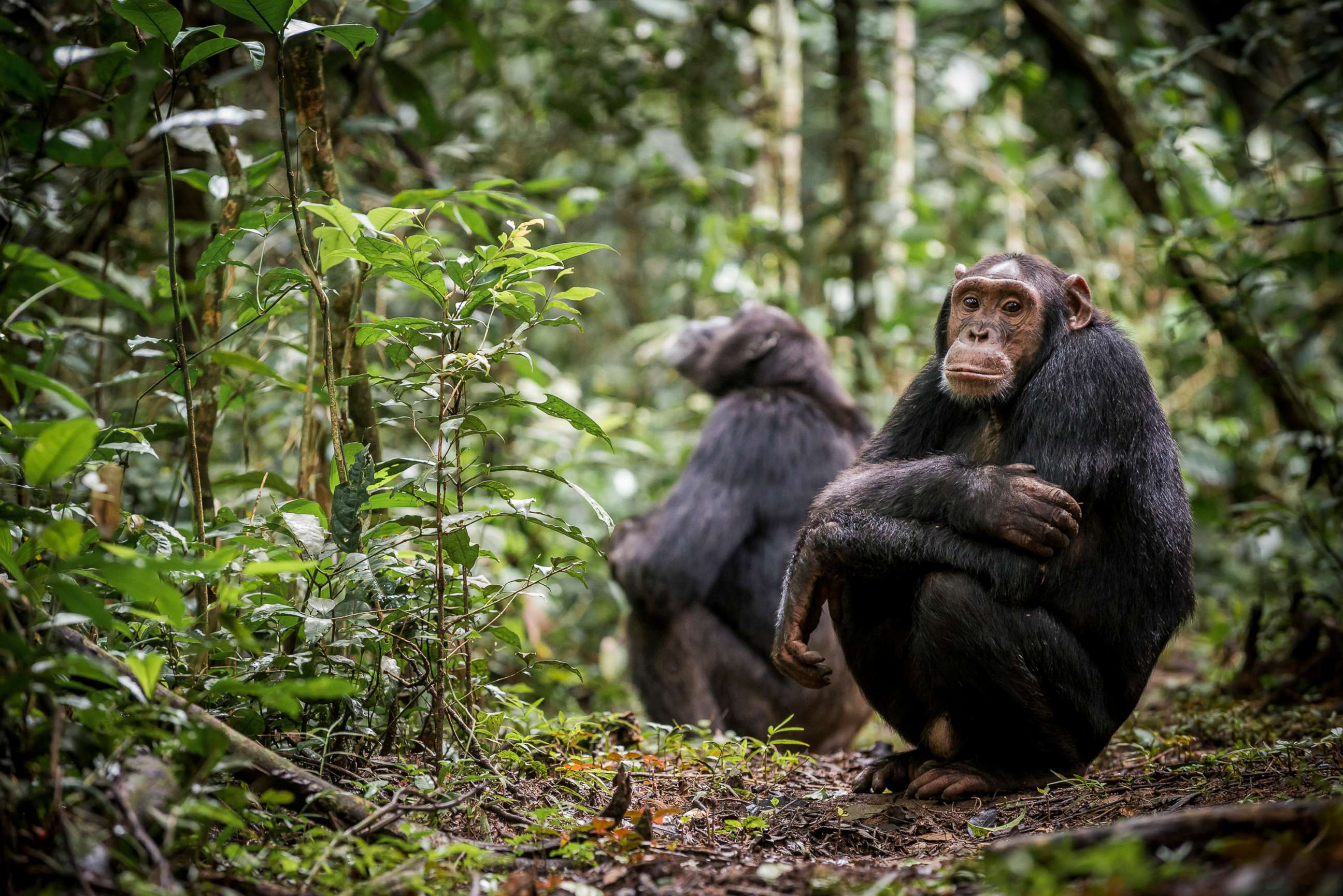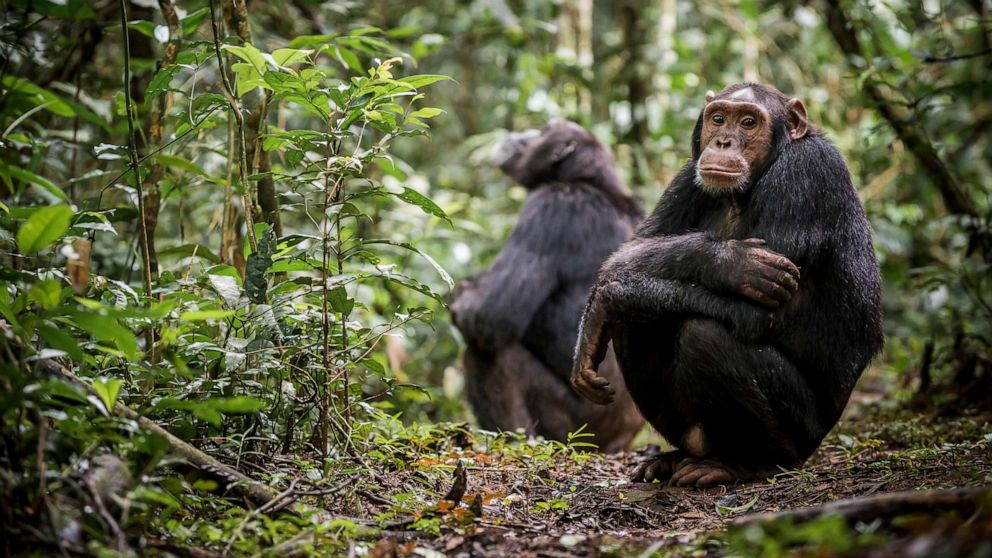Scientists see signs of chimpanzees being able to adapt to climate change
This is an Inside Science story.
A chimp may not always be just a chimp when it comes to behavior. In fact, the more varied the conditions the primates face, the more diverse their behavior and culture.
"[Chimps] have a great degree of behavioral flexibility," said Ammie Kalan, a postdoctoral researcher at the Max Planck Institute for Evolutionary Anthropology and the lead author of the study published Sept. 15 in Nature Communications.
In 2019, Kalan was part of a large team of researchers that found that humans may be negatively affecting the diverse world of chimpanzee behavior. That study included nine years' worth of data on 144 chimpanzee communities or social groups across 15 countries in Africa.

For the previous study, the researchers documented 31 different behaviors like making tools for foraging or using caves or ponds to cool off. Different chimp groups used different combinations of these behaviors. For this study, the researchers looked for relationships between a group's behavioral repertoire and the type of environmental and climatic conditions it experienced in its home range.
They found the chimpanzees that lived in variable conditions had a larger repertoire of behaviors. For example, those living in savanna woodlands, which include open areas and patches of forest, engaged in more types of behavior than chimps that lived in comparatively uniform dense forests. Also, the chimps that experienced more variation between seasons or even between years had a larger behavioral repertoire than those that lived in more even climates.
Kalan said this discovery gives the researchers hope that the chimps will be able to adapt to the ongoing problems they face.
"There might be a great degree of promise for this species as we're heading further into this era of the Anthropocene where we have climate change and other unprecedented changes to habitats," she said.
It's also interesting from an evolutionary point of view, she said, especially since chimps are relatively closely related to humans. Kalan said she would like to see follow-up genetic research analyzing whether the diversity in behavior between groups is reflected in genetic differences.
Inside Science is an editorially independent nonprofit print, electronic and video journalism news service owned and operated by the American Institute of Physics.





